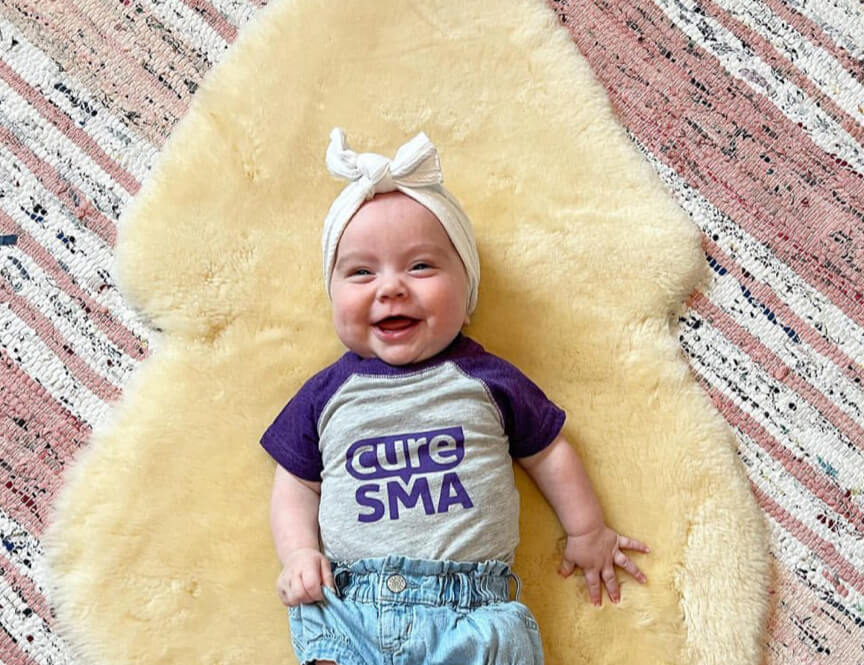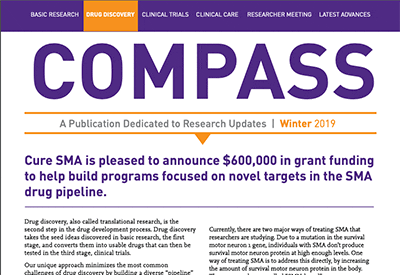To the full spinal muscular atrophy (SMA) community, we want you to know that Cure SMA is continuing to support you with information and resources related to the COVID-19 pandemic. The following frequently asked questions (FAQs) are designed to help address key concerns expressed by members of the SMA community about COVID-19 vaccination and provide additional information about how you can protect yourself and your family. We encourage you to refer to the Centers for Disease Control and Prevention (CDC) for the most up-to-date information.
To read all Cure SMA communications and guidance to date related to the pandemic, visit the Cure SMA Coronavirus (COVID-19) Information Center. If you have any questions, please email [email protected].
Frequently Asked Questions
Last updated July 2021
What are the COVID-19 vaccines available in the U.S.?
The first COVID-19 vaccines were approved by the U.S. Food and Drug Administration (FDA) for Emergency Use Authorization on December 11, 2020 (Pfizer-BioNTech vaccine) and December 18, 2020 (Moderna vaccine). Then, on February 26, 2021, the FDA cleared a third COVID-19 vaccine (Johnson & Johnson vaccine). Shipments of the vaccines to states has begun and is ongoing. Learn more about the latest on vaccines tracking here.
Should I take a COVID-19 vaccine?
Cure SMA believes that vaccination will be the best defense against the COVID-19 virus. We recommend speaking with your healthcare provider about the best vaccine option and timing for your vaccination. Currently, a COVID-19 vaccine is not expected to be available for young children until more studies are completed, likely in the fall of 2021. Those with SMA who are eligible to receive the vaccine and their caregivers, should receive the approved COVID-19 vaccine to help protect those who may not be eligible to receive the vaccine at this time.
Are the COVID-19 vaccines safe?
The U.S. vaccine safety system ensures that all vaccines are as safe as possible. Based on the results from clinical trials of tens of thousands of adults, and subsequent studies in younger populations, a determination is made about the efficacy and safety of the COVID-19 vaccine in the populations studied. After the FDA approves each vaccine, the federal vaccine advisory committee reviews available data before making vaccine recommendations to U.S. Centers for Disease Control and Prevention (CDC).
How do I know which COVID-19 vaccine is the right one for me or my child to take?
All approved vaccines will be deemed effective and safe, and getting vaccinated to prevent COVID-19 is the number one priority. When you are ready to be vaccinated, we recommend speaking with your healthcare provider about the best vaccine option and timing for your vaccination. Recommendations are to receive the vaccine available to you. Currently, a COVID-19 vaccine is not expected to be available for young children until more studies are completed, so follow-up with your healthcare provider will be needed once one is available. In the interim, individuals with SMA and their families/caregivers should receive the COVID-19 vaccine when eligible.
What are the side effects of the COVID-19 vaccine?
Will these vaccines interfere with receiving gene replacement therapy?
The current vaccines approved by the FDA do not interfere with any SMA treatment. Vaccines that are based on adenovirus also do not interact or interfere with the current SMA treatments. If a vaccine is based on Associated Adenovirus (AAV), there is a possibility for cross reactivity.
After I am vaccinated for COVID-19, will I be able to start being around people again?
Many states are lifting their COVID-19 restrictions, including the need to wear masks after a person is fully vaccinated. Experts need to understand more about the protection that COVID-19 vaccines provide before making that decision. If you are around people after you have been vaccinated, we still recommend diligent masking and social distancing.
Will I have to pay for the COVID-19 vaccine when I get it?
According to the CDC, vaccine doses purchased with U.S. taxpayer dollars will be given to the American people at no cost.
When do we expect a COVID-19 vaccine to be available in the U.S. for younger children?
Vaccines are now available to anyone who wants and needs it, as long as they are 12 years of age or older. Clinical trials continue to expand the age groups and therefore the groups recommended to receive the vaccines could change in the future. As of now, a COVID-19 vaccine will not be available for young children until more studies are completed, likely in the fall of 2021.
Check out these helpful articles about COVID-19 vaccines from the U.S. Centers for Disease Control and Prevention (CDC) and the National Institute of Allergy and Infectious Diseases (NIAID).



